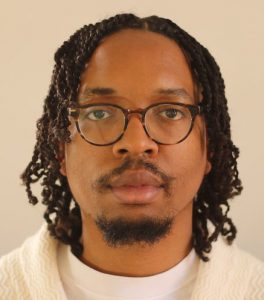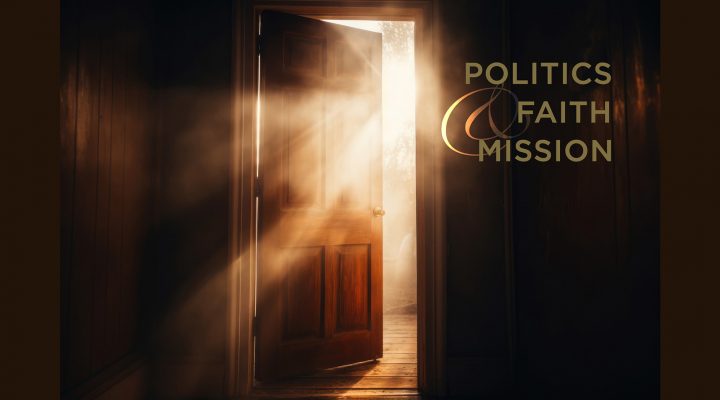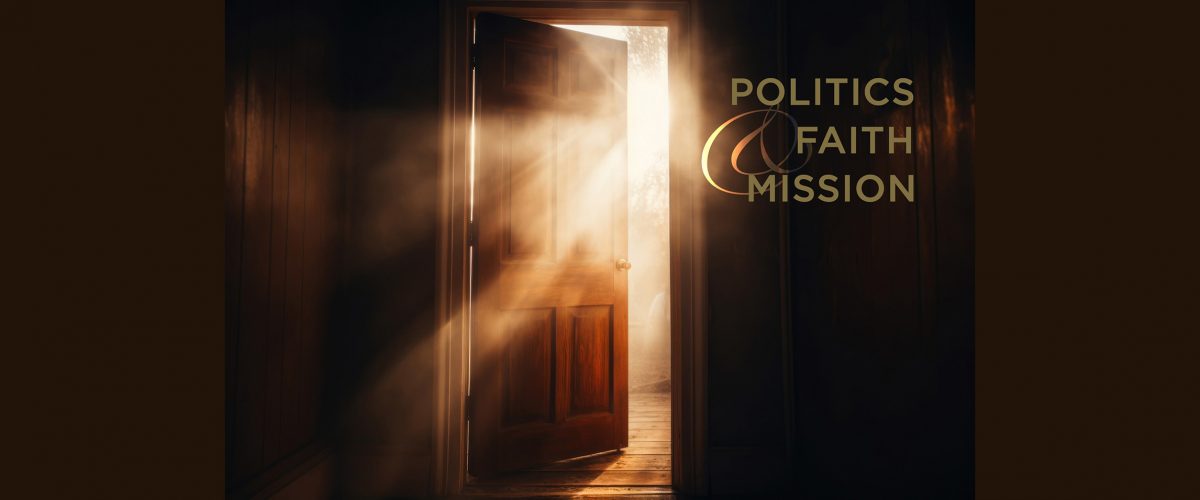Whenever I’m asked what contemporary writers people should be reading on race and culture, the first name I always produce is Vann Newkirk II. Vann is senior editor at The Atlantic Monthly, where he has written essential stories on race, culture, history, politics and the environment, and has hosted two powerful Atlantic podcasts, “Floodlines,” which tells stories of race and politics against the backdrop of Hurricane Katrina, and “Holy Week,” a podcast on the aftermath of Dr. King’s death, which Vann explored with me last year. It is always a pleasure to talk with Vann, and I am grateful for the chance to check in with him on his thoughts, fears and hopes about the present moment.
Greg Garrett: You’ve just written for The Atlantic about Black history and this moment where some parents are trying to ban controversial books and legislators in states like my own Texas are ordering public schools to limit coverage of subjects that make their students — presumably straight white Christian students — feel guilty or ill at ease. What case can be made for white discomfort and in favor of James Baldwin’s warning that unless we acknowledge and confront our shared history, we all remain in chains? How can we best teach all of America’s history?

Vann Newkirk II
Vann Newkirk II: Generally, discomfort is necessary for all students. That’s part of the point of a good education: to stretch minds, challenge learners and to push students to think for themselves. For nonwhite students, racial discomfort is standard. Learning how to navigate and think about life in a country where just a few decades ago, your parents or grandparents couldn’t even go to school with white children — let alone trying to deal with the real-life effects of bigotry today — is not a comfortable experience.
What we are really doing when we specifically privilege a white right to be free of this kind of shaking up is framing any discussion of America’s racism as a story that ends in the past and has no ramifications for the present. This kind of contortion is not simply withholding or refraining, but lying, and that kind of lie, told at scale, creates an alternate reality.
I don’t know if there is a single “best” way to teach history, but one thing I am particularly interested in now is the preservation and presentation of primary documents created by Black people from Reconstruction through Jim Crow. I’m not just talking big speeches and landmark books, but convention minutes, diaries, family Bibles, small-town newspaper articles and the like. They not only help refute the lie but also help students understand just how close — both in time and in experience — James Weldon Johnson’s “gloomy past” really is.
“This kind of contortion is not simply withholding or refraining, but lying, and that kind of lie, told at scale, creates an alternate reality.”
GG: In the six years or so you and I have been talking about race, I’ve never been quite so concerned about which way that long moral arc is bending. I find my family and I are alarmed about a lot of things in 2024. What concerns do you, your family and your community have about what’s going on in America and particularly in this election cycle? How are you acting — how might we act — on those concerns?
VN: Given the hectic nature of politics and court decisions and such, it’s difficult to appreciate how different the picture is America today than it was even when I was a teenager. Regarding race, the Supreme Court’s decision to strike down affirmative action and subsequent agitation against all race-based programs are pointing us in the direction of the looming illegality of all direct assistance to account for generations and generations of white supremacy. Voting rights are also under sustained assault. America hasn’t exactly been a bed of roses since 1965, but the main laws that did prompt at least the expectation that its people should be concerned about equality are on the outs.
Where does that leave us? I’m not sure. It’ll be damn difficult — probably impossible — to maintain a tenuous American democracy and tackle the big global issues, from climate change to AI and beyond, under this status quo. So at present I am covering how people are challenging the status quo, how frontline communities driven by both necessity and compassion are addressing climate, and how people are rebuilding democracy and local civics in some of the most distressed places.
GG: You and I are devoted readers of Mr. Baldwin, and 2024 is not just an election year, but James Baldwin’s centennial. I’ve told people I’d dearly love to see you write a letter from Baldwin to the nation for The Atlantic. Until that day, I can ask: What wisdom would he have to offer us about living in the Era of Trump? What would he have to say about the role of true religion and the importance of witness?
VN: I’ll push back here a bit. Do we know we’re living in the Era of Trump? Do we know that history will look back on this moment and say Trump and Trumpism are the most important things going on?
“All wisdom derives from the past, and the past shows us that we should never discount the human potential to change our conditions, even in the most challenging circumstances.”
I’m not just giving you a hard time but hoping to illustrate my point. All wisdom derives from the past, and the past shows us that we should never discount the human potential to change our conditions, even in the most challenging circumstances.
To me, as a journalist, those who bore witness before me are the source of this wisdom. Sojourner Truth and Frederick Douglass bore witness to the seemingly eternal regime of slavery — and to its fall. Fannie Lou Hamer was born in the teeth of Mississippi sharecropping and in 1964 called out Jim Crow on national television. These folks built even as they suffered, and lived as people concerned with posterity, and that’s what we need today.
All these ancestors operated with a certain confidence that their actions mattered, even if the results were unseen in the present of their lives. That’s religion, isn’t it? That’s faith.
GG: I learned from keeping up with you on social media that you were planning to read some Tolkien. I’ve just returned to The Fellowship of the Ring at your distant prompting. Tolkien’s friend and Oxford colleague C. S. Lewis wrote that we don’t re-read books for the plot, but for those things that get caught in the net of the plot. Why do you read Tolkien? What does he offer you or us? And who else are you reading, watching or listening to this year for comfort, inspiration and hope?
VN: To me, Tolkien is both a nostalgia touchstone and a way to reconnect with the craft of writing. I can’t open The Hobbit or any of the Lord of the Rings without thinking about the time I spent in my great-grandmother’s house out in the country curled up reading in a tree hollow. My first experience reading the books was when my father gave me his copies from when he was a child, so reading is always a way for me to remind myself that I exist in a tradition and community.
But also, the story told through Tolkien’s work is so beautiful and vibrant and suffused with a belief in the triumph of goodness and selfless love. His writing is evocative and elegant, and it reminds me of the power these words of ours have — they can build worlds.
At the moment, I am reading a book that is also staggeringly beautiful, but perhaps in a different way. Safiya Sinclair’s How to Say Babylon is a wonderful memoir about the author’s upbringing in Jamaica in a Rastafari family. I am still working on it, but I can say now that it is currently inspiring me, and that all good works bring me hope.
Greg Garrett teaches creative writing, film, literature and theology classes at Baylor University. He is the author of two dozen books of fiction, nonfiction, memoir and translation, including the critically acclaimed novels Free Bird, Cycling, Shame and The Prodigal. His latest novel is Bastille Day. He is one of America’s leading voices on religion and culture. Two of his recent nonfiction books are In Conversation: Rowan Williams and Greg Garrett and A Long, Long Way: Hollywood’s Unfinished Journey from Racism to Reconciliation. He is a seminary-trained lay preacher in the Episcopal Church. He lives in Austin with his wife, Jeanie, and their two daughters.
More from this series:
Politics, faith and mission: A conversation with Sarah McCammon
Politics, faith and mission: A conversation with Winnie Varghese
Politics, faith and mission: A conversation with Kaitlyn Schiess
Politics, faith and mission: A conversation with Russell Moore
Politics, faith and mission: A BNG interview series on the 2024 election and the Church
Politics, faith and mission: A talk with Tim Alberta on his book and faith journey
Politics, faith and mission: A conversation with Jemar Tisby
Politics, faith and mission: A conversation with Leonard Hamlin Sr.
Politics, faith and mission: A conversation with Ty Seidule
Politics, faith and mission: A conversation with Jessica Wai-Fong Wong


